MercoPress. South Atlantic News Agency
Latin America
-
Tuesday, October 22nd 2013 - 20:01 UTC
Chilean leading presidential candidate comments trigger anti-terrorism law debate
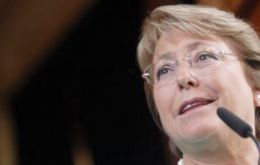
Chile’s controversial anti-terrorism law became a major talking point for presidential candidates as the country nears elections after front-runner Michelle Bachelet spoke out against the law’s application in a widely publicized arson case which resulted in two deaths.
-
Tuesday, October 22nd 2013 - 19:58 UTC
Interpol and Rio 2016 Olympics committee sign agreement to strengthen security
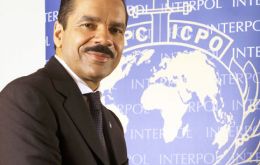
An agreement has been signed by INTERPOL and the Rio 2016 Organizing Committee for the world police body to provide additional support to the Brazilian authorities in ensuring the safety and security of the event.
-
Tuesday, October 22nd 2013 - 19:38 UTC
Lula da Silva praises protests in Brazil as something 'healthy' for democracy

Former president Lula da Silva described the street protests that have shaken Brazil as something 'good and healthy' and said demands reveal that the Brazilian people have discovered that it is possible to aspire for more, although when as a union leader he marched “I didn't destroy public or private property”.
-
Tuesday, October 22nd 2013 - 16:34 UTC
Cartes and Mujica will address Mercosur and port facilities in Friday's meeting in Montevideo
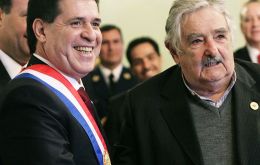
Paraguayan president Horacio Cartes will be visiting Uruguay next 25 October to meet with his peer Jose Mujica and a month later will be flying to the Vatican to visit Pope Francis, November 25, announced Foreign minister Eladio Loizaga.
-
Tuesday, October 22nd 2013 - 16:26 UTC
Punta Arenas expects 23% increase in calls this 2013/14 cruise season

Punta Arenas in the extreme south of Chile is expecting over a hundred international calls this coming 2013/14 cruise season, which could reach over 150 including Puerto Natales and the domestic cruise lines, according to local authorities.
-
Tuesday, October 22nd 2013 - 05:31 UTC
Ozone layer hole reaches Argentine and Chilean Patagonia
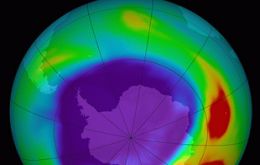
The hole in the ozone layer over Antarctica stretched for the third time this year to reach cities in the south of Argentina and Chile according to the Izaña Atmospheric research centre in Tenerife, Canary Islands.
-
Monday, October 21st 2013 - 22:14 UTC
Cruise on world tour calls in Uruguay; season opens officially November
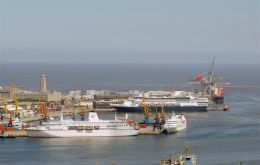
Even when Uruguay's official cruise season is scheduled for November this last Sunday Montevideo received “Costa Neo Romantica” a vessel on a world tour. She was expected to call at the Atlantic seaside resort of Punta del Este, but adverse weather conditions cancelled the visit.
-
Monday, October 21st 2013 - 21:41 UTC
Brazil auctions 35-year production rights to giant offshore Libra oil area
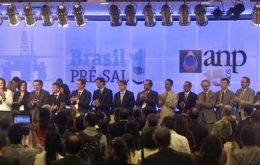
Brazil sold production rights to develop the giant offshore Libra oil area to a consortium led by Brazilian state-run oil company Petroleo Brasileiro SA in an auction with a single bid on Monday. The auction in Rio do Janeiro took place amid strict security measures with hundreds of police forces clashing with protestors.
-
Monday, October 21st 2013 - 21:30 UTC
Argentine Central bank losing reserves at a rate of 47.5 million dollars per day

Argentina's central bank is currently losing international reserves at an average of 47,5 million dollars per day or 8 million per hour, according to the latest figures on the bank's accounts which is increasingly used by the government of President Cristina Fernandez to honor foreign debt and finance the budget.
-
Monday, October 21st 2013 - 07:39 UTC
Brazil's development bank to target infrastructure and less on corporations

Brazil will inject less money next year into the country's development bank BNDES, (National economic and social development bank), its leading source of long-term corporate loans, to focus more on infrastructure financing as concerns mount over public debt.
